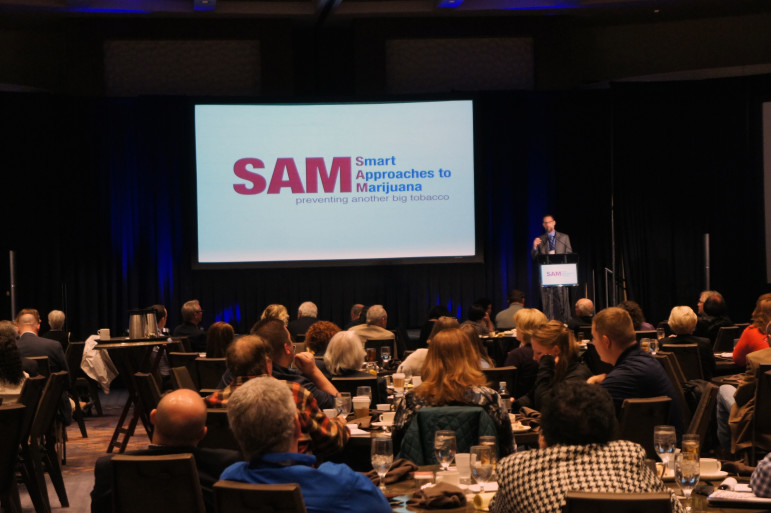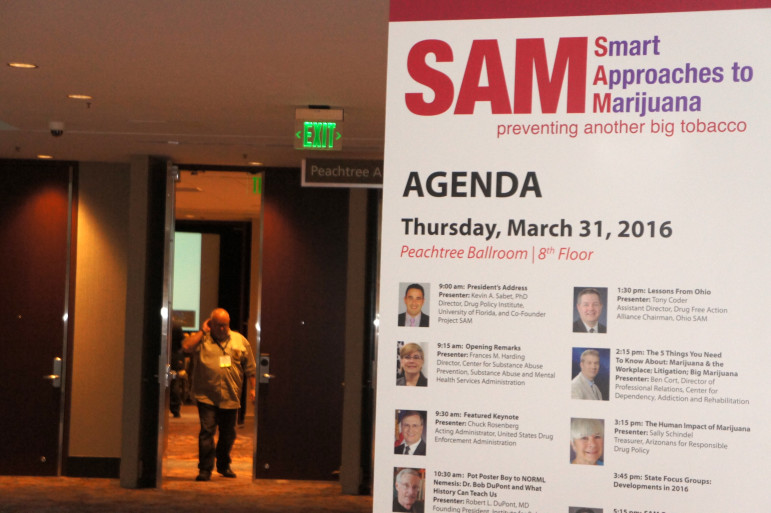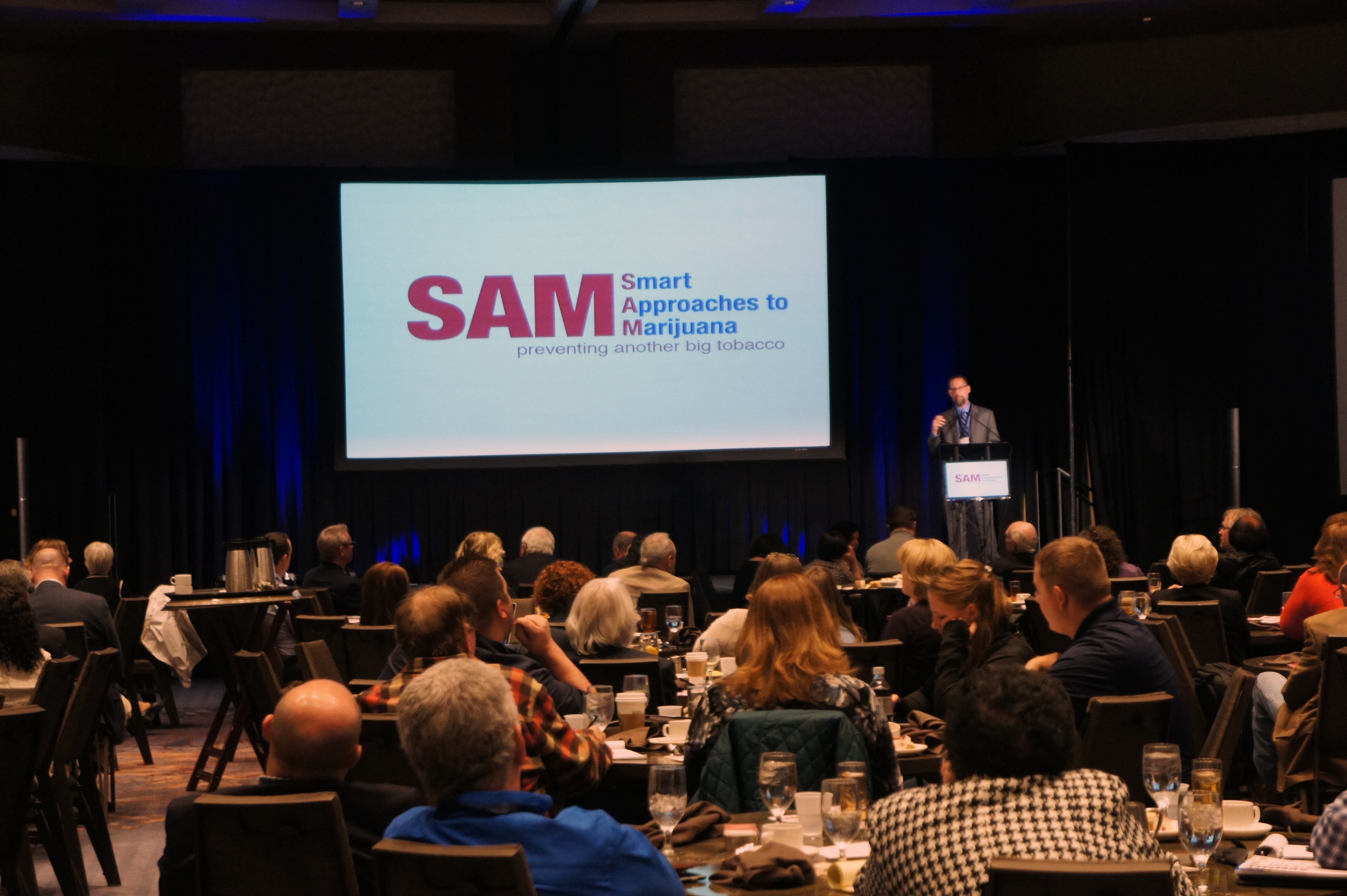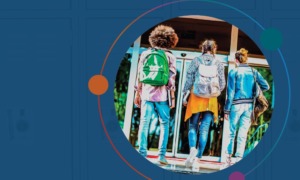
Project SAM held a one-day summit focusing on the dangers of marijuana during the National Rx Drug Abuse and Heroin Summit in Atlanta last week, which addressed the growing opiod epidemic.
Just like the abstinence-only approach to teen sex, the abstinence-only approach to marijuana sees itself as offering a realistic path to young people.
Drug laws are being relaxed, four states plus Washington, District of Columbia, have made marijuana legal, and drug criminalization is linked to the problem of mass incarceration — but one vocal group is still urging what amounts to a “just say no” approach.
“Of all of our drugs, the most dangerous drug is marijuana,” said former White House drug chief Bob DuPont, at the SAM (Smart Approaches to Marijuana) Marijuana Education Summit in Atlanta last Thursday.
Project SAM was founded in 2013 by former Congressman Patrick J. Kennedy and Kevin A. Sabet, director of the Drug Policy Institute at the University of Florida. The organization includes doctors, lawmakers, treatment providers, teachers and law enforcement officers.
“We need to be clear that the standard is ‘no use,’” DuPont said in his speech at the conference. “Pediatricians don’t say this.”
DuPont, a psychiatrist who specializes in addiction and anxiety disorders, was the first director of the National Institute on Drug Abuse (1973-78) and was drug chief under presidents Richard Nixon and Gerald Ford.
He acknowledged that the message of Project SAM has become counterculture. “[But] this is a public health disaster,” he said.
The nuances of policy don’t make a difference, he said. The message must be a clear yes or no, he said. Don’t use alcohol, nicotine or marijuana for reasons of health, he said.
“It’s all about youth,” he said. Cigarettes, alcohol and marijuana are gateway drugs, he said.
Is abstinence a realistic goal? “Is it something you can say with a straight face?” he asked rhetorically. His answer was yes.
Timely or untimely?
The message comes at a time when more Americans than ever accept the view that marijuana should be legalized.
A Gallup poll in November showed 58 percent of Americans favor legalization. And 23 states now allow the medicinal use of marijuana.
Marijuana is far less harmful than alcohol and tobacco, according to the New York Times.
A review of scientific literature published in the British Lancet in 2010 concluded that alcohol was the most harmful drug, followed by heroin and crack cocaine. Following those, in order of harm to society, were methamphetamine, cocaine, tobacco, amphetamines and cannabis.
The New York Times went on to say in its editorial that great harm has come from laws against growing, distributing and possessing marijuana, “with billions spent on imprisoning people for violating pointlessly harsh laws.”
Howard Samuels would not agree. He is a clinical psychologist who serves on the board of SAM.
“I see firsthand the damage marijuana does,” he said at the conference. “It’s the dumbing down of our American youth.”
Addicted to heroin in his youth, Samuels said he has been clean and sober for 31 years. “For us in the field there can be no compromise,” he said.
Kevin Sabet, president and CEO of Project SAM, said marijuana drains ambition, drive and motivation.
“My message for youth leaders is that they should be looking at legalization with a very skeptical eye,” he said.
He claims there’s a massive industry seeking to become like the tobacco industry and looking to hook young people.

Project SAM (Smart Approaches to Marijuana), co-founded in 2013 by former Congressman Patrick Kennedy, opposes the growing movement to legalize marijuana. It takes an abstinence-only position at a time when 58 percent of the population favors legalization, according to a recent Gallup poll.
The new drug problem
The summit on marijuana was sandwiched within the National Rx Drug Abuse and Heroin Summit in Atlanta last week, where President Barack Obama called for a focus on treating opioid addiction as a public health problem.
Between 2000 and 2014, the use of prescription opioid drugs doubled, according to the Centers for Disease Control and Prevention.
In contrast to the larger summit, SAM’s message is an old one from the War on Drugs era. The new drug problem is a heroin and prescription drug epidemic.
On the opposite side of the fence from SAM is NORML (National Organization for the Reform of Marijuana Laws), which advocates legalization of marijuana.
“We’ve tried [prohibition],” said Danielle Keane, political director for NORML. Criminalization was not effective and was not good public policy, she said; millions of Americans are still consuming marijuana.
Even so, NORML’s message to young people is to beware.
NORML supports laws prohibiting juvenile access, similar to the laws surrounding alcohol and tobacco.
“Marijuana is not a harmless substance,” Keane said. “It’s not perfectly fine for everyone to use as much as they want.”
It can have an adverse affect on the brain, and it has the potential for abuse, she said.
How marijuana can harm
The U.S. Substance Abuse and Mental Health Services Administration (SAMHSA) points out that users of marijuana can become dependent on it. In a Tips for Teens publication, it notes that 957,000 people sought treatment in 2012 to quit their marijuana habit. The drug affects the brain, particularly in the area of memory, and has a major impact on driving ability, according to SAMHSA. Marijuana smoke also has more tar and carcinogens than cigarettes do.
It also remains illegal in the majority of states.
Marijuana today is generally three times more potent than it was 20 years ago and it can impair learning and memory.
Puff for puff, it is more harmful than cigarettes, according to SAMHSA.
For people struggling with other addictions, abstinence from all substances greatly increases the ability to recover.
Both NORML and SAM advocate a greater focus on education about marijuana.
Education is what helped reduce rates of alcohol and tobacco use, Keane said.
However, NORML’s stance begs the question: If prohibition didn’t work and millions are using marijuana, why will prohibition work with youth?
And SAM sends a message reminiscent of the exaggerated “reefer madness” warnings of the past century.
Are the alternatives either just say no or just wait til you’re 21?































